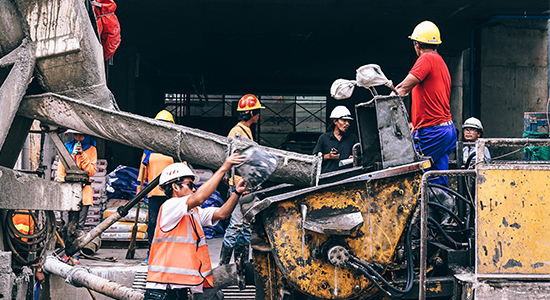Health & Safety Regulations
It’s well known that The Health & Safety at Work Etc Act 1974 places a duty on employers to look after their employees – but what about others who are not employees? For example Contractors or Agency workers?
Although they may not be “your” employee, they are still a person ‘at work’ and as such you have a duty to keep them safe – section three of the act says “It shall be the duty of every employer to conduct his undertaking in such a way as to ensure, so far as is reasonably practicable, that persons not in his employment who may be affected thereby are not thereby exposed to risks to their health or safety.”
This basically means that you have a duty to ensure that these people are not put at risk by putting in place reasonably practicable control measures. The term "reasonably practicable" means weighing up the level of risk against the cost, time and effort and unless there is a gross disproportion between them you must apply those controls.
Construction Firm Case
A recent case illustrates where the company has not complied with the requirements, which has resulted in serious injury and a prosecution: Two construction firms were fined £2.8m and ordered to pay costs of £101k between them after an agency worker was injured when his foot was drawn into a rotating screw conveyor. The work should have been done by a specialist contractor, but this hadn’t been arranged so the agency worker did it – a job he did not have a safe system of work for and had no experience of doing. The worker was standing by the screw conveyor when it started up and without warning it pulled his foot into it; this resulted in three toes being amputated.
Did the construction firm do everything reasonably practicable to protect this person?
No – there are a number of reasonably practicable things that could have been considered to prevent this from happening. For example, effective planning of the work to arrange for the qualified person to attend and commission the machine, proper supervision of the works, protective barriers preventing the person accessing the danger area, a proper safe system of work assessment, adequate lock off procedure to prevent the machinery starting up, a warning alert to show the machine was about to start up - all of these actions would have potentially been reasonably practicable and could have prevented the incident from occurring.
As a duty of care, you must conduct adequate checks on the competency / suitability of contractors who are completing the work for you. This includes; but is not limited to):
- Do they have adequate insurance?
- Evidence of competence: for example; Qualification Certificates / Licences, Evidence of professional body membership if applicable, Evidence of applicable registration (such as gas safe register).
- References from previous clients.
- Copies of their RAMS (Risk Assessment and Method Statement)
- Details of their safety performance data
- Evidence of appropriate functional PPE (if relevant)
Once on site they must be given adequate instruction on hazards on site (site induction) and be given adequate supervision to ensure they are safe.
We can audit your site and help you develop your safety management system. We can also conduct training for you and your team to increase your knowledge and understanding and ensure that you are in the best position to protect your people, your contractors, and your business.






